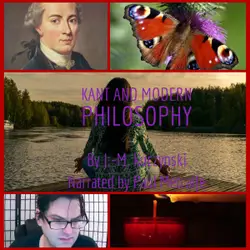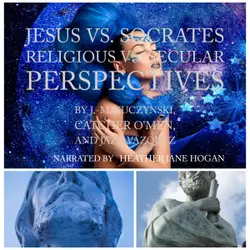In this dialogue, a case is made that justice is a kind of social proxy for the cause-effect relation. When in a state of nature, man has no one but himself to rely on in his dealings with nature, which, though cruel, is consistent, driven as she is by inviolable physical laws and which, consequently, always rewards an action with an equal and opposite reaction. But human beings are emotional and therefore mercurial creatures, and when avails himself of their assistance, they may decide not to honor their commitments to him. The interrelations of the members of a given society are just to the extent that its members fulfill their mutual obligations as consistently as nature follows her own laws, and those interrelations are unjust to the extent that they don't.

What is an Intention?
J.-M. Kuczynski
audiobook
Existence and Necessity
J.-M. Kuczynski
audiobook
Determinism, Freedom, Psychopathy
J.-M. Kuczynski
audiobook
Thought and Language
J.-M. Kuczynski
audiobook
Analysis of: There Will Be Blood: A Study Guide
J.-M. Kuczynski
audiobook
Observations and Aphorisms
J.-M. Kuczynski
audiobook
Straw Jobs Being Created to Fill in for Techno-obsolete Jobs
J.-M. Kuczynski
audiobook
AI Destroys More Jobs Than It Creates : And That's Why We Need Universal Welfare
J.-M. Kuczynski
audiobook
¿Qué es el conocimiento?: Un Curso Intensivo en Epistemología (Spanish Edition)
J.-M. Kuczynski
audiobook
Economics in an Hour : An Interactive Course
J.-M. Kuczynski
audiobook
Kant and Modern Philosophy
J.-M. Kuczynski
audiobook
Jesus vs. Socrates : Religious vs. Secular Perspectives
J.-M. Kuczynski
audiobook
